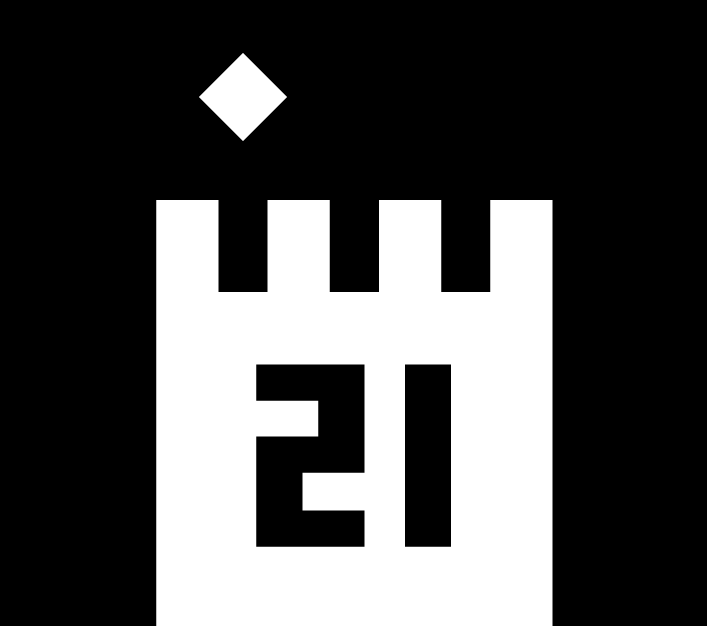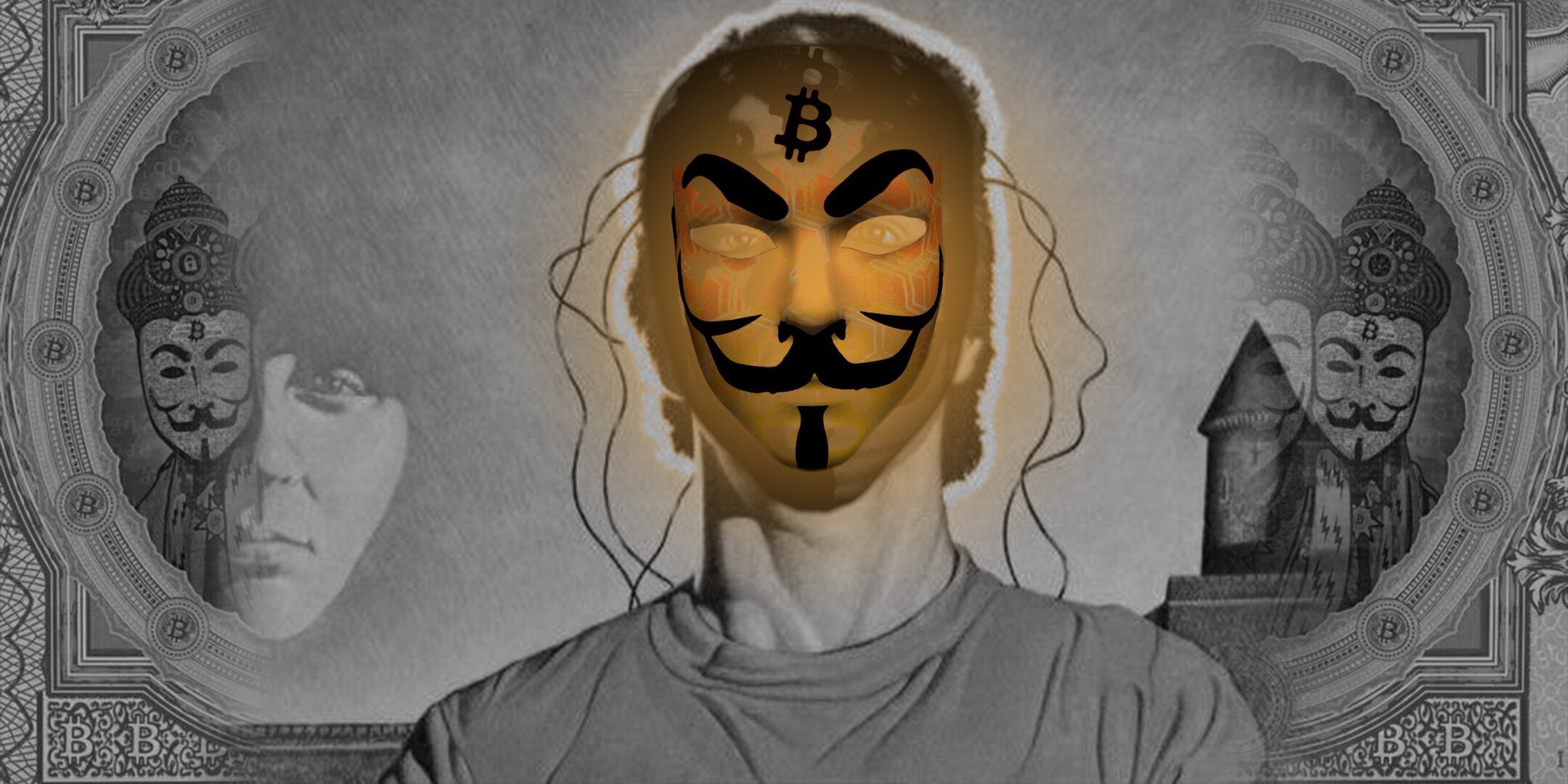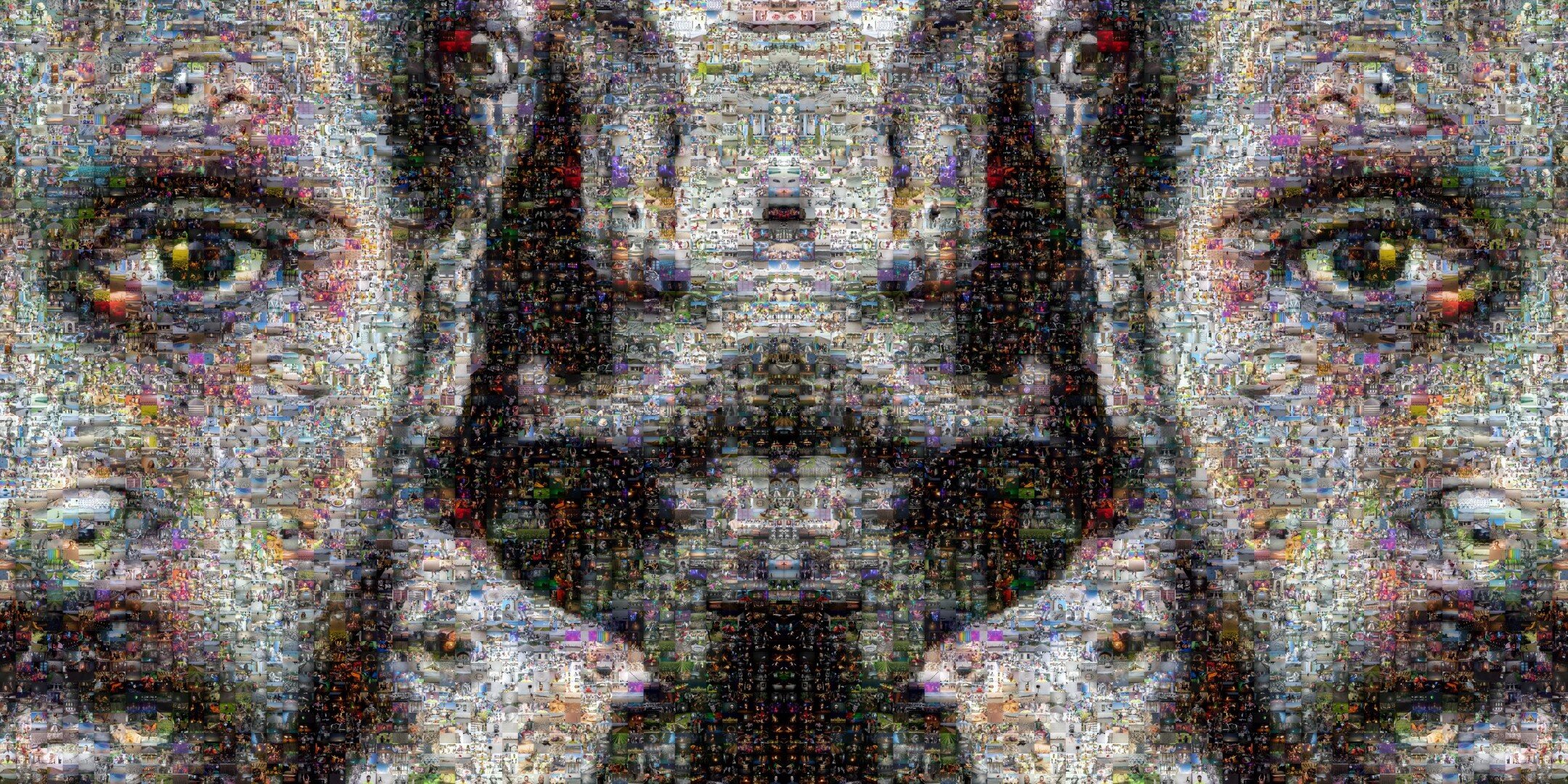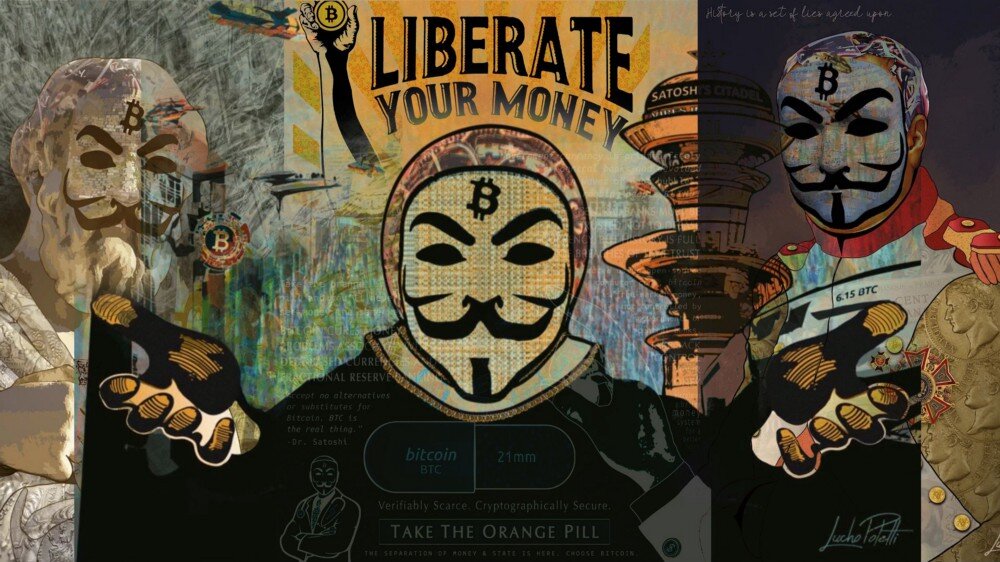In 1981, at a time where the internet was in its infancy (and I was just a gleam in my father’s eye), the legendary mathematician, computer scientist, and science-fiction author Vernor Vinge published his prophetic novella True Names.
The story unfolds in two realms: the real world (meat space) and the Other Plane (cyberspace).
Reading it today, many concepts dreamed up in the book seem neither strange nor far-fetched. For example, spending the better part of your waking hours in cyberspace, a place where most people know you by your pseudonym (and not your True Name), might have been science-fiction in the 80ies. Today, thanks to the internet and the abundance of virtual worlds it spawned, it is a regular part of life.
It is no accident that Bitcoin was created by a pseudonymous entity.
The legend of Satoshi Nakamoto will always be a part of Bitcoin’s story, which in turn means that the concepts explored in True Names — identity, privacy, anonymity, pseudonymity — will be part of it as well.
Discovering Bitcoin and plugging yourself into #BitcoinTwitter (original illustrations by Bob Walters)
I was born in a small town in Austria, a town that shall remain nameless for the time being. We were living in a quiet and family-friendly neighborhood, in a quiet and family-friendly house, with a garden, two cats, and beautiful plum-, pear-, and cherry-trees. The cats were named “Mimmi” and “Morli,” keeping with the family tradition of grouping things by the first letter. Being cats, they didn’t really care if you called them by their name. The only thing they would listen to was the sweet sound of Whiskas cans being opened. Way before I learned that cats are somewhat agnostic to identity, I had to learn to make sense of this world. I had to get familiar with the very pegs we hang our ideas on; I had to learn how to speak. I don’t know when I started babbling, but when I did, I repeatedly said one syllable, over and over again: dʒɪ.
My sister, both jokingly and lovingly, repeated that all the time and so it came to be that she gave me a nickname that stuck ever since: Gigi.
Turning away from a sea of shitcoins.
It’s funny how some things turn out. I’m pretty sure she didn’t think much of it at the time. After all, she was only five years older than me. (She still is; I never managed to catch up!) After a while, all the kids in the neighborhood started to refer to me as Gigi. Since this was at a time before I had a chance to think about identity in any way, it came to be that I never truly identified with my real name. In essence, Gigi became my real name. If you didn’t call me that, I wouldn’t react. Over the years this became so engrained that pretty much everyone who got to know me didn’t use my legal name: teachers, professors, my employers, co-workers, friends — even today it isn’t uncommon that people who know me quite well don’t know my legal name at all.
On the internet, this is normal. You get to know people, their handles, their personalities, what they post, how they react, in short: what they are like — to some extent at least. This is even more pronounced in the gaming world, where intense interaction, voice communication, and a shared reality come into play. I’ve had quite a few friends over the years that I would consider real, true friends. Friends I’ve met online, thanks to the lovely world of online gaming. People I’ve talked to every day for several years. People whose life stories I know intimately, and they know mine. We’ve been through hardships and heartbreaks, talked until the sun rose again, got drunk, shared secrets. Most of these people I’ve met in meat space at a later point in time. Some, however, I haven’t met to this day. I will probably never meet them, now that my gaming days are mostly behind me. And that’s fine. I grew up in a world where nicknames, handles, pseudonyms, and anonymity are the norm, and I wouldn’t have it any other way.
That’s one of the reasons why I love the internet, and it’s one of the reasons why I love Bitcoin: you don’t need a fixed identity to use it. That’s the beauty of it: True Names not required.
Early training for the great meme wars of the future.
Unsurprisingly, the whole idea of anonymity and pseudonymity is under attack. People conspire in digital witch hunts to find out the True Names of pseudonymous personalities, trolls threaten to doxx people to mess with their lives, and, sadly, even journalists threaten to reveal the real identities of their subjects these days. To make matters worse, Google, Facebook, and Amazon want to make you believe that you have one true identity. That you can be measured, parametrized, surveilled, and predicted. They promise benevolent assistance thanks to algorithms that understand you better than you understand yourself while cutting your identity into neatly packaged pieces and selling them to the highest bidder. Banks and governments do the same thing, by the way — but without the reassuring promises.
What these companies don’t realize is that identity is prismatic. Your persona depends on circumstances and context, both in meat space and online. You will present yourself differently in a night club as opposed to a funeral, just like you will present yourself differently on Tinder as opposed to LinkedIn — at least I hope you do. Whom you talk to is important as well: you will say different things — and in a different tone — to your child, your lover, your pastor, your boss, the cute barista at your favorite coffee shop, or the co-worker you can’t stand to see. You are also not the same person you were ten years ago. Your interests and political views have probably changed, as has the way you see the world and yourself. Thus, your identity is both fluid and prismatic.
In the words of Walt Whitman: you contain multitudes.
The cypherpunks recognized that a free society can not function if identity is rigid and known to all. A free society requires the option to selectively reveal yourself to the world, or not reveal yourself at all.
“Privacy is necessary for an open society in the electronic age. Privacy is not secrecy. A private matter is something one doesn’t want the whole world to know, but a secret matter is something one doesn’t want anybody to know. Privacy is the power to selectively reveal oneself to the world.”
The distinction between complete anonymity and pseudonymity is an important one: anonymity does away with identity completely. Pseudonymity allows for temporary identities. You might be a space cat, a wizard, a Japanese programmer, a Shaolin, a Samourai, a dragon lord, or a nocturnal Octopus who does magic at midnight. Pseudonyms allow you to build up a character, a reputation, a self-image of your choosing. Complete anonymity is crucial as well. It allows you to speak freely, unencumbered from reputational loss, disconnected from your identity — constructed or not.
“Man is least himself when he talks in his own person. Give him a mask, and he will tell you the truth.”
History has shown that in society in general, and in Bitcoin in particular, you don’t necessarily need to use your legal name to be recognized or taken seriously. There is a reason why Eric Arthur Blair didn’t choose to publish his books under his True Name, but use a pseudonym: George Orwell. Alisa Zinov’yevna Rosenbaum probably had her reasons too — she published her novels as Ayn Rand. Similarly, Satoshi Nakamoto had good reasons to stay pseudonymous and not use his True Name. He chose to protect his identity so he could eventually remove himself from the picture, leaving Bitcoin without a leader and a creator. A gift from the gods, if you will.
Paradoxically, pseudonyms can be more powerful than True Names. The best example of this is probably Siddhārtha Gautama — the Buddha. He transformed himself into an idea. The Buddha can’t be killed, even if you kill the person currently known as the Buddha. The pseudonym transcends the individual. We are all Buddha, at least potentially, at least in part.
Original artwork by Lucho Poletti
Similarly, we are all Satoshi. Every single one of us who cares about Bitcoin, driving it forward, educating others, starting and running companies, pushing adoption, writing code, documentation, books, and essays, making music, creating art. Everyone who uses Bitcoin how he or she sees fit. Everyone who runs a node. Everyone who chooses to exit the fiat system and hold some (or all) of their value in bitcoin. We are all Satoshi because nobody is Satoshi. We are all doing our part to fix the money, and in turn, fix the world. There used to be a Satoshi, but now there is no Satoshi. He chose to keep his identity secret, and I hope we will never find out what his True Name was. Not that it would matter — his gift to us is all that matters. Bitcoin was given to us, and now it simply is. It doesn’t require an identifiable creator because True Names are not required.
Just like names can transcend the individual and become something more powerful, a mask can become a symbol in itself. In such cases the utility of the mask becomes secondary — the primary use is to show support for a cause, to rally behind an idea or an ideal.
One of the most powerful scenes in the movie V for Vendetta is the march of the masks in which thousands of citizens march toward the Houses of Parliament, hiding their faces behind Guy Fawkes masks to support the idea put forward by the masked protagonist.
Not too long ago, analogous to the scene depicted in the movie, an army of bitcoiners decided to (temporarily) change their online identities in support of an individual (and the idea the individual embodies). I am talking, of course, about our beloved and pseudonymous space cat. For a couple of weeks, we all wore a mask. For a couple of weeks, we were all hodlonaut.
We were all hodlonaut because the thought that a pseudonymous pleb can be doxxed, attacked, snuffed out, and silenced by rich and lying assholes was so outrageous, so preposterous, so disturbingly wrong that it was worth to stand up and put on a mask. We need to be able to disassociate from our identities to protect ourselves. We need the freedom to selectively reveal ourselves. We need the possibility to rally behind names, symbols, masks, and the ideas they represent — using transient identities and wearing masks ourselves if we have to. If identities are permanent and transparent, rebellion and revolution are impossible.
The history of names and identities is a fascinating one. Before I fell down the Bitcoin rabbit hole I’ve been working on passport and identity software, effectively writing software for the surveillance state. There are many things in my life that I’m not exactly proud of. Writing software to automatically process, identify, and classify people is one of them. Yes, the technology that powers facial recognition, fingerprint scanners, and pattern matching is fascinating. Yes, the fact that you can extract information from passports by simply tapping your phone on them is cool technology (the little chip symbol on your passport means that it has an NFC chip in it).
But is it necessary? Is it even a good idea? As you can probably guess, I don’t believe it is.
Normalizing the idea of permanent identities will hasten the transformation of our surveillance states into full-blown dystopian panopticons.
Normalizing the use of biometrics will make it even worse. While inconvenient, it is possible to change your name. Need to change your face or your fingerprints? Good luck with that. Remember: biometrics are usernames, not passwords.
Back to identity. Keep in mind that passports were supposed to be a temporary measure. Of course, as is custom for all temporary fixes, passports are now a permanent part of our lives. How we use and see names has changed quite drastically over time as well. We now imagine that every person on the planet has a first name and a last name and that these names will nicely fit the [a-Z] pattern of the systems that process them. However, some people don’t have last names. Others have names that include (or consist solely of) numbers, and billions of people have names that don’t fit into the anglocentric alphanumeric system at all. There are roughly a hundred million people named 王, for example.
Historically, names and identities have always been intertwined. Many of the common surnames are derived from occupations: Carter, Cooper, Thatcher, Smith, Tailor, Fisher, Glover, Slater, Shoemaker, Weaver, Ward, Webster — all these and more are occupations turned family names. Your name was a description of what you do, not defining who you are in totality.
Legal names, by the way, aren’t necessarily less weird than nicknames can be. Grimes and Elon Musk decided to name their son “X Æ A-12”, to pick a recent example. The AI researcher and mathematician Ben Goertzel named his kid “Qorxi” which is short for “quantum organized rational expanding intelligence.” There is also this one dude who decided to change his legal name to “Captain Fantastic Faster Than Superman Spiderman Batman Wolverine The Hulk And The Flash Combined,” Frank Zappa’s daughters “Moon Unit” and “Diva Muffin” — and many more, I’m sure.
My point is this: tying everything you do and every transaction you make to one singular identity is not only unnecessary, it is a recipe for disaster.
It is a road that leads to the dystopian hellscape of social credit scores — the orgasmic dream of every dictator and totalitarian ruler that ever lived.Remember that it never was necessary in the first place. You go to the baker, say hi, hand him some money, he hands you a loaf of bread, and that’s it. The money doesn’t know who you are. Neither does the bread. The baker doesn’t have to know or care who you are. No names or identities are necessary. Contrast that to any online payment you made in the last decade. You go to the online shop — which probably already knows everything about you, and if it doesn’t, forces you to register — every click and every keystroke is monitored and analyzed. Once you find what you’re looking for you pay with PayPal, a credit card, or similar payment processors that also know way too much about you. The transaction has to be approved by this third party, and will only be approved if your identity is known and you aren’t offending the moralities of the companies and jurisdictions involved.
Bitcoin does away with all that nonsense.
It is a return to a saner world. It doesn’t require an identity. It doesn’t require approval. It doesn’t care who you are. It doesn’t force you to show your ID card, or your passport, or your face, or any other biometric identification. It doesn’t even care if you are human or not. Want more fairness in this world?
How about opting into a financial system that can not discriminate. “Don’t be evil” doesn’t work. Can’t be evil does.
Bitcoin allows us to build towards a better future. A future where True Names are not required. The current system is broken in many ways. We can do better. We must do better. One by one, people will discover the beauty of Bitcoin and join this peaceful revolution. They will be free to use their real names if they want to, but they don’t need to do so. This is Bitcoin. You can stay anonymous. You can be pseudonymous.
That is the beauty of it.
True Names not required.
-Gigi
Gigi is the author of 21 Lessons, a popular book about lessons learned from falling down the Bitcoin rabbit hole. His writing tries to illuminate Bitcoin from multiple angles, using metaphors from biology (Proof of Life - Why Bitcoin is a Living Organism), physics (Bitcoin's Gravity - How idea-value feedback loops are pulling people in), and other disciplines. He is the creator and maintainer of bitcoin-resources.com, a comprehensive list of curated books, articles, podcasts, podcast episodes, and other resources that help to provide a comprehensive understanding of Bitcoin. In 2019 he launched the German-speaking Bitcoin podcast "Einundzwanzig" with one of his co-hosts. Before falling down the Bitcoin rabbit hole, he was a software engineer leading multiple development teams and deploying critical large-scale apps - some with millions of users. He holds a Master's degree in computer science and is passionate about security, privacy, and of course, Bitcoin.








